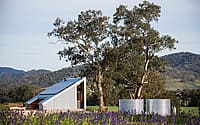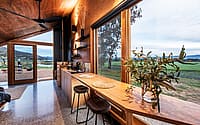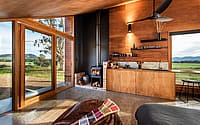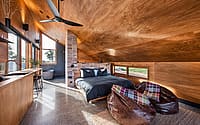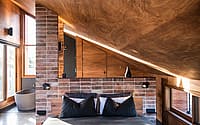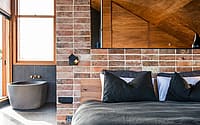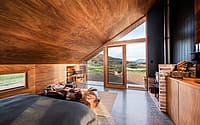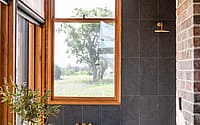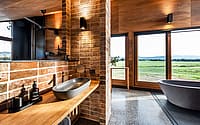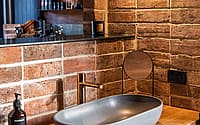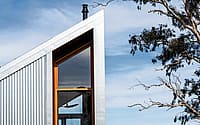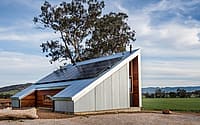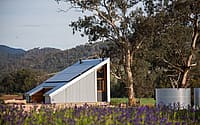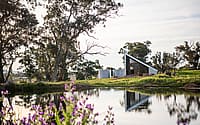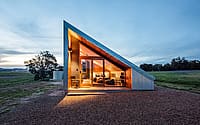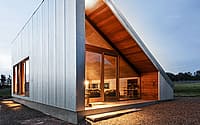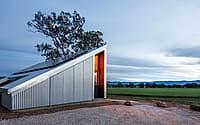Gawthorne’s Hut by Cameron Anderson Architects
Gawthorne’s Hut is a luxury, 2-person, off-grid, tourism experience within a working rural property 10 minutes from the center of Mudgee, Australia, designed in 2020 by Cameron Anderson Architects.

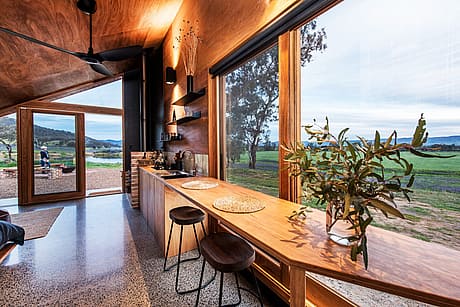

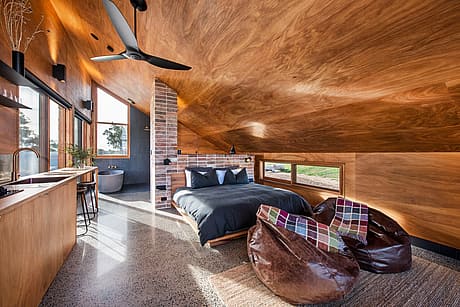
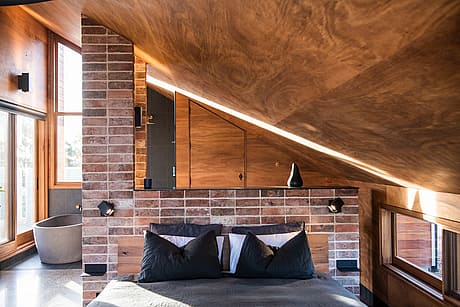
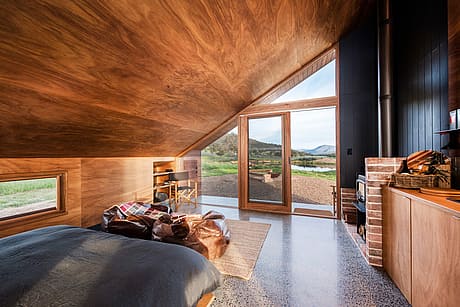
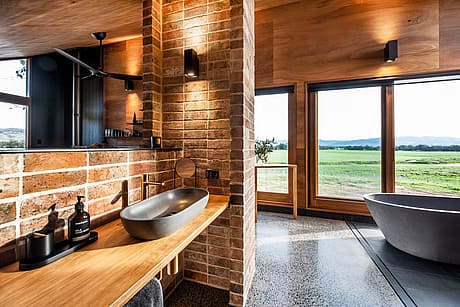
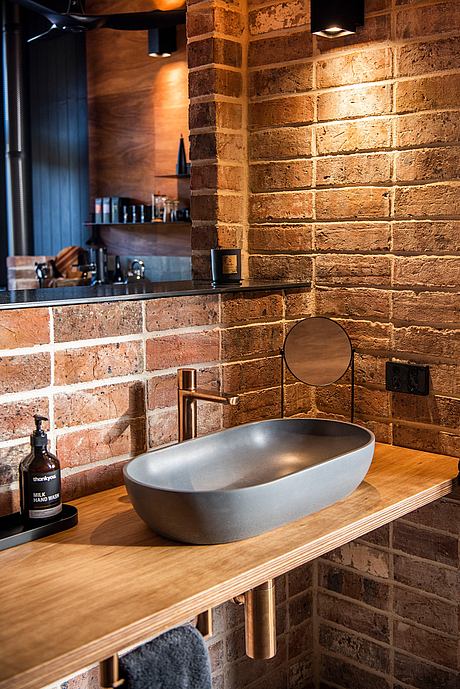
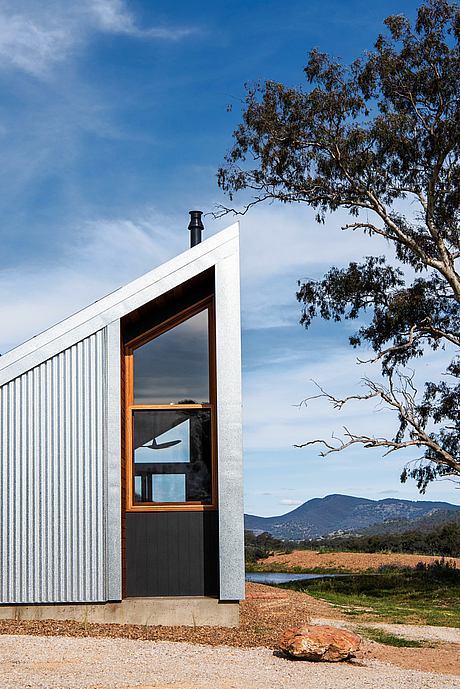
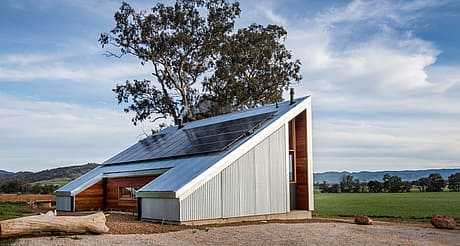
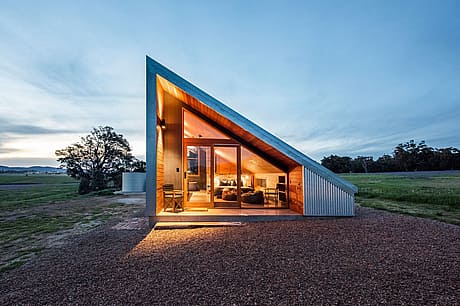
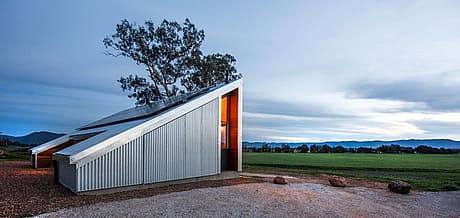
Description
Gawthorne’s Hut is a luxury, 2-person, off-grid, tourism experience within a working rural property 10 minutes from the center of Mudgee. The project intends to create a unique and sustainable tourism experience that responds directly to the history and -context of the property. The angled galvanized clad shell and rich timber-lined interior reference the predominant rural vernacular of hay sheds and outbuildings and in particular, the existing hay shed that was destroyed by a storm in 2017. The angled roof form of galvanized steel is both a reference to the relic of the existing shed and also the client’s desire to accommodate the solar array on the building. The solar array meant the need to maximize the Northern roof area. The angled form is emphasized internally through a blackbutt lined ceiling which also frames the valley views to the East.
The Micro floor plan of 40m2 internal area is maximized through the use of an open floor plan and minimal joinery, the only enclosed area being the WC. A low-height brick wall provides a small degree of separation to the bathroom functions. The recycled bricks have been meticulously repurposed from the only surviving part of the original cottage on the property, the fireplace. Like many rural properties throughout NSW the only sign of a previous building is the defiant existing chimney still standing strong after all around it has been destroyed. The recycled brick wall within the space is a tongue-in-cheek reference to the existing chimney while also allowing services to come down from the ceiling and provide a degree of separation to the bathroom. The stack bond coursing emphasizes the fact that the bricks are no longer load-bearing. Gawthorne’s Hut is named after the historical owner of the property Benjamin Gawthorne, the recycled bricks coming from the remains of the original cottage.
Critical to the project is the concealment of the services so as to not detract from the picturesque rural setting and visitor experience. Great effort has been taken to conceal services out of sight with a large galvanized clad door to the Western façade opening to reveal storage, solar batteries and inverter, electrical board, and a gas hot water unit. The location of services here also provides a heavy buffer to the Western sun. The project also achieves a BAL 12.5 bushfire rating. The property demonstrates to guests the opportunities of building smaller footprints and incorporating sustainable design elements. Critical to this project is a 6.6kw off-grid solar system and 12kw battery storage, 40,000 Litres of rainwater storage, Double glazed blackbutt windows and doors, thermal mass via a polished concrete slab, gas hot water, efficient bathroom fixtures, and passive solar shading via the Western buffer created by the services enclosure. Stage 2 will see the addition of shading to western and southern glazing however the client is looking to assess the thermal performance over 12 months first before completing the works.
Photography by Amber Hooper
Visit Cameron Anderson Architects
- by Matt Watts